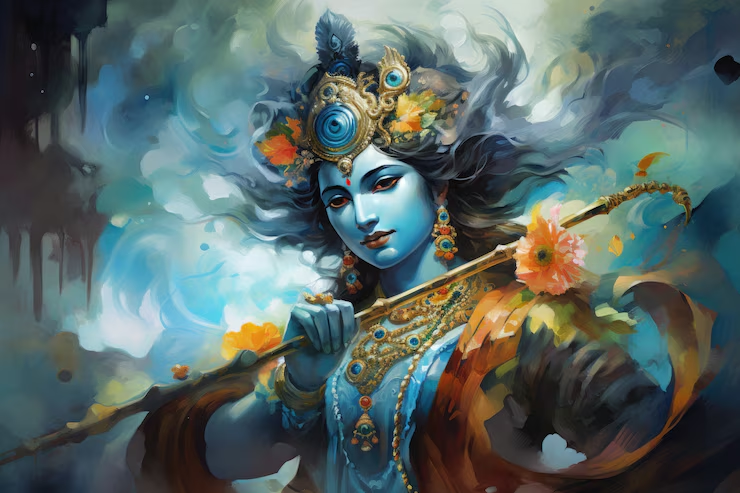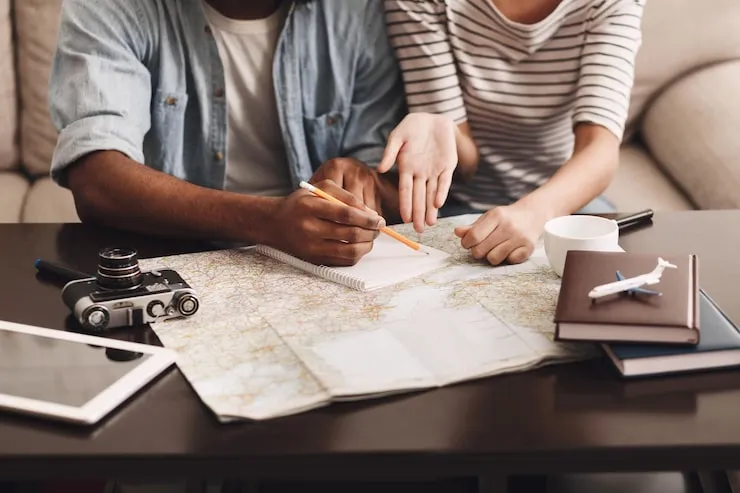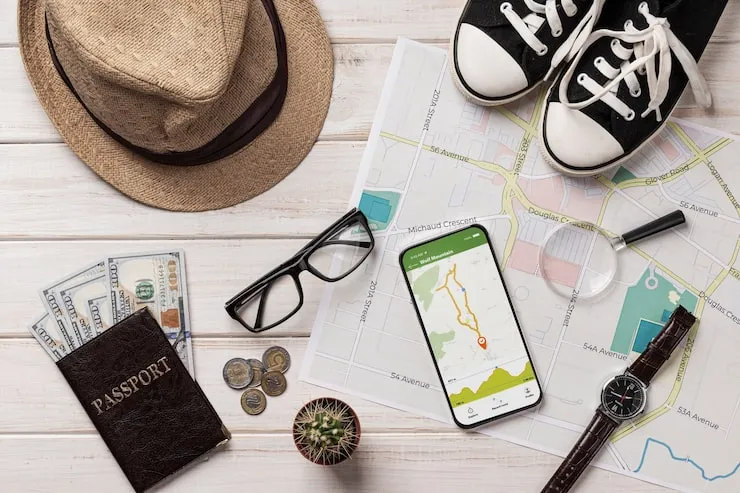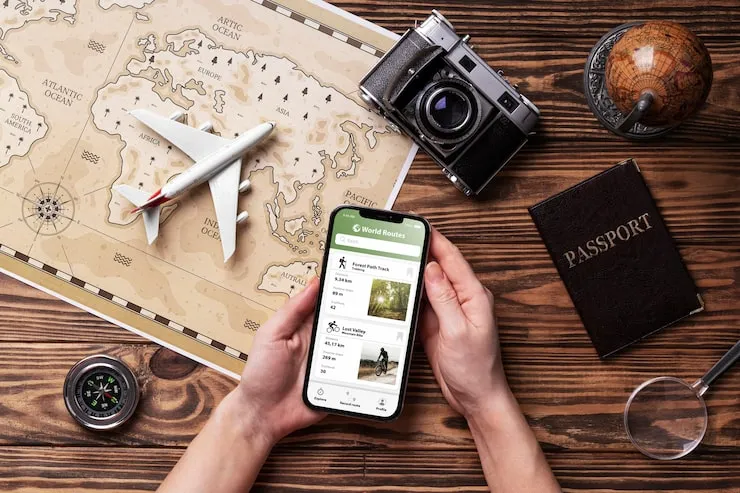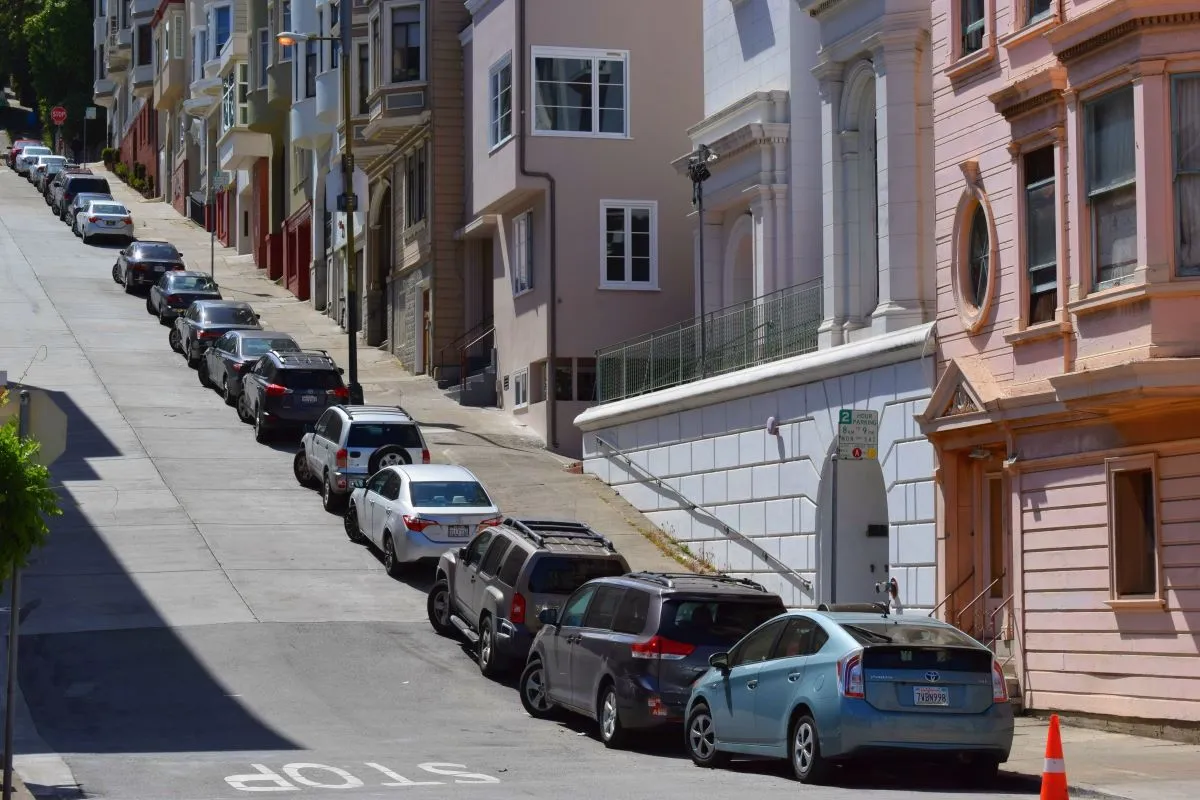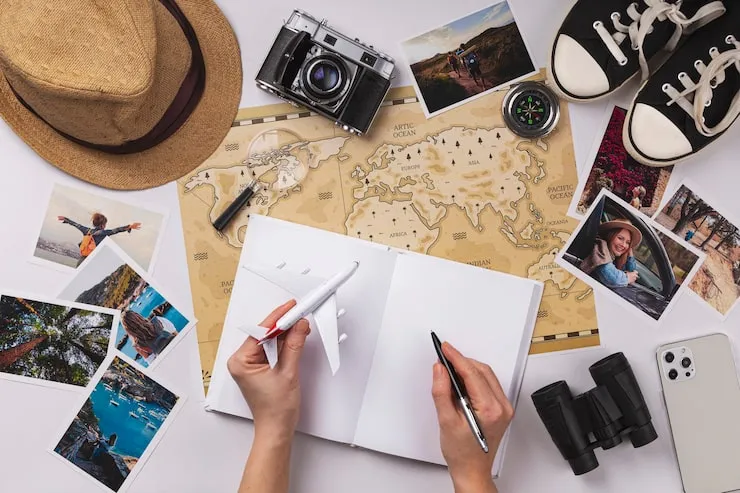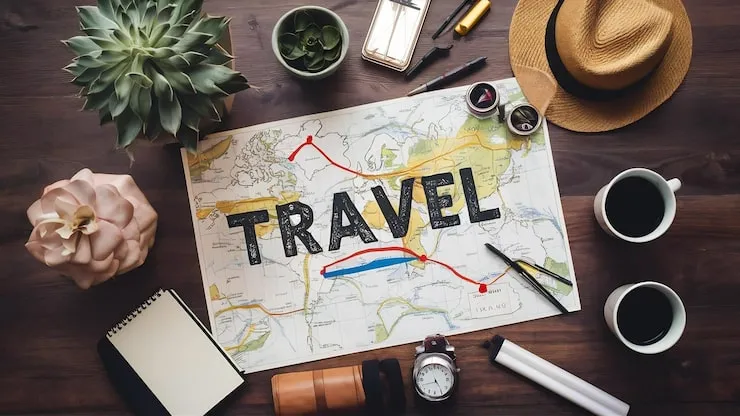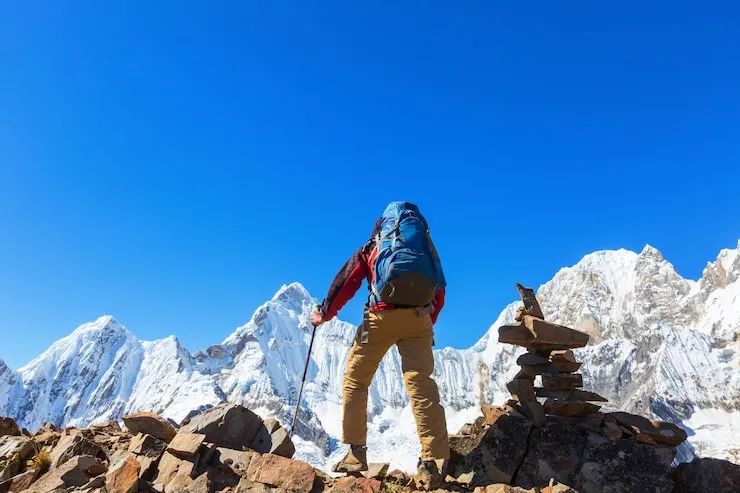Ever entered a place and just paused? Not because someone told you to, but because the air itself asked for silence? That’s Dwarka. The kind of town where even a breeze seems older than your memories. You step down from the train or bus, expecting noise, but it doesn’t scream for attention.
It welcomes you with a calm that feels rehearsed over centuries. The sky here is somehow wider. The sea is always nearby, whispering stories you can’t quite hear. And the bells? They don’t ring; they sing. Soft. Rhythmic. Constant. Like a song you forgot but recognize instantly.
You walk into the city, unsure where to begin. And that’s fine. Dwarka doesn’t need an itinerary. It’s not ticking boxes. It’s telling stories. People say this is Krishna’s city. Not just a temple or a storybook setting. A city he built, lived in, and left behind. Fact? Maybe. Faith? Definitely.
Where Walls Tell Stories Louder Than Tour Guides?
Temples are everywhere. Not just tall stone ones. Tiny shrines tucked into street corners. A statue here. A flag there. And suddenly you’re in the middle of someone’s prayer. No signs, no explanations. Just faith doing its thing.
Read Also: Kalimpong: The Quiet Hill Escape Your Family Will Love
The Dwarkadhish Temple—that’s where most people head first. Walk a little more. The Rukmini Temple. Sudama Setu. Gomti Ghat. Each stop, a new page in this weirdly sacred, strangely simple town. Kids might not “get” it immediately.
But they will feel it. Maybe when feeding fish in the river. Or watching someone break into a spontaneous bhajan. And that’s enough. There’s no rush. And honestly, Dwarka doesn’t work with rush. It’s the kind of place that slows your watch without asking permission.
Where the Sea Is More Than Just Water?
What is it about oceans that makes people stare at them forever? In Dwarka, the sea isn’t just a backdrop. It’s a character. Sometimes calm, sometimes rowdy. Always watching. Always present. Take a boat to Bet Dwarka. It rocks a bit. Smells like salt and engine oil. Feels exactly like a journey should. Not smooth.
Fishermen pass by, nets hanging off the sides. Gulls scream overhead. And then you reach an island that feels like it never learned how to hurry. They say Krishna lived here. The home of a god. It’s quiet now. You walk around, not looking for proof but just feeling things.
Monkeys steal food. Kids run barefoot. Elders light incense and smile without saying anything. And suddenly, it doesn’t matter whether Krishna stood here or not. You did. And that’s something. Later, maybe you sit by Dwarka Beach.
The kids dig holes in the sand. Someone flies a kite. A conch shell vendor passes, offering blessings with every sale. You look at the sun slipping into the ocean and wonder how time passed so quickly. Again.
Tastes, Trinkets, and Things That Don’t Need Explaining
Ever eaten something and immediately wished you could pack ten of them home? It’s not delicate. It’s bold. Hot theplas, tangy chutneys, sweet dal, and crispy everything. No fancy presentation, just full plates and fuller stomachs.
Related Post: Spiritual Gujarat 2025: Hidden Stepwells, Rural Homestays
Oh boy, the lanes are chaotic and noisy in the best way. One stall sells brass Krishna idols, the next—colorful beads, the next—sandalwood sticks that make your hands smell like old temples. Kids tug your hand for shell necklaces. You promise to buy later. You forget. They remind you.
There’s no mall. No big-brand cafés. Just chai in glass cups, boiled peanuts in paper cones, and the occasional cow wandering between scooters. And still, you won’t miss the malls. Because of this? This is real. You don’t remember what you bought. Evening comes. Streets glow in a soft orange. Families gather again on rooftops. Somewhere, someone sings. You don’t understand every word. You don’t need to.
The Part Where You Leave, But Not Really
Every journey ends, sure. But some stick. And Dwarka? It’s sticky. Not in a messy way. In the kind of way that lingers long after you’ve unpacked your bag. You’ll be making tea one morning and suddenly remember the sound of temple bells. Or your kid might bring home a school project about mythologies and say, “Remember when we saw Krishna’s city?”
You’ll smile. Not because it was a fancy trip. But because it was different. It felt personal. Like Dwarka gave you a little piece of something you didn’t know you were missing. A pause, maybe. A story. A still moment in a world full of noise. Most places you visit. Dwarka?
It stays with you. In bits. It smells. In that little shell you stuffed in your bag. You’ll forget hotel names. But not the way your heart slowed down when you sat by the sea. So if anyone asks, “Why Dwarka?” don’t explain. Just say, “It felt like somewhere we were meant to be.” And that’ll be enough.



